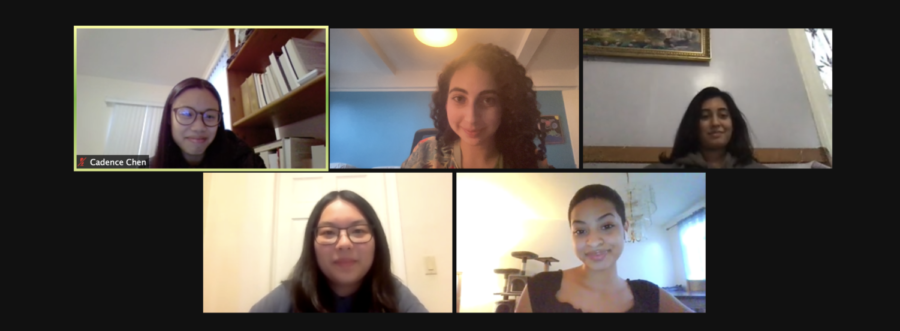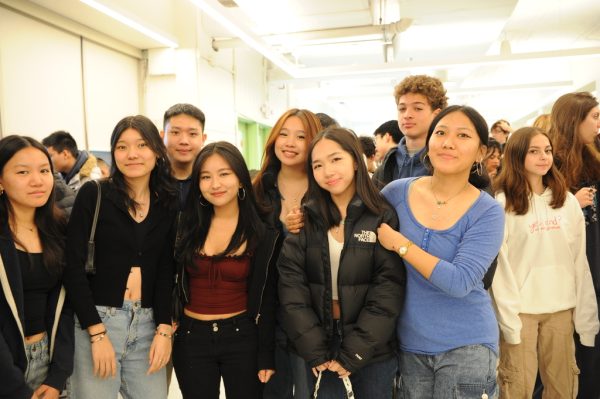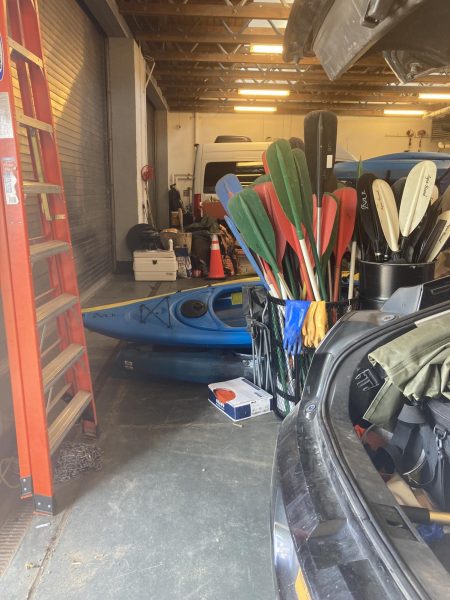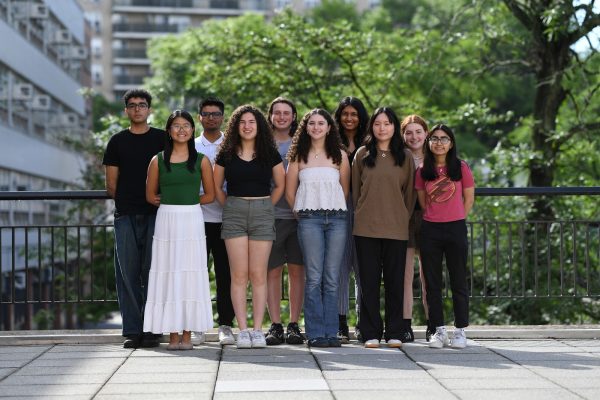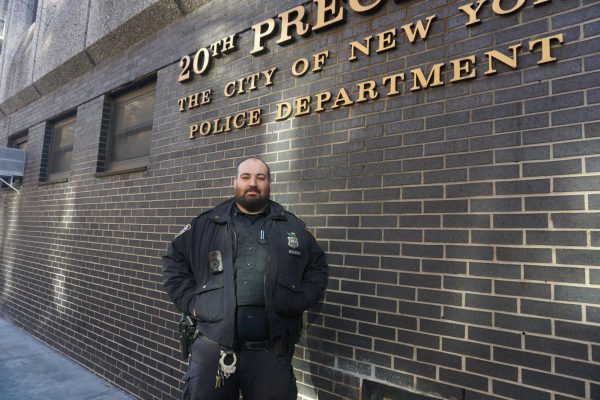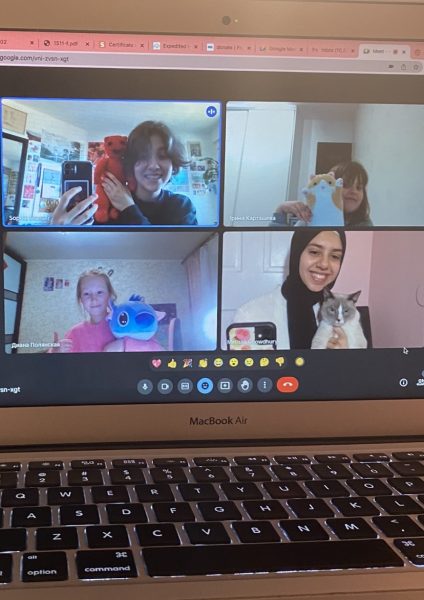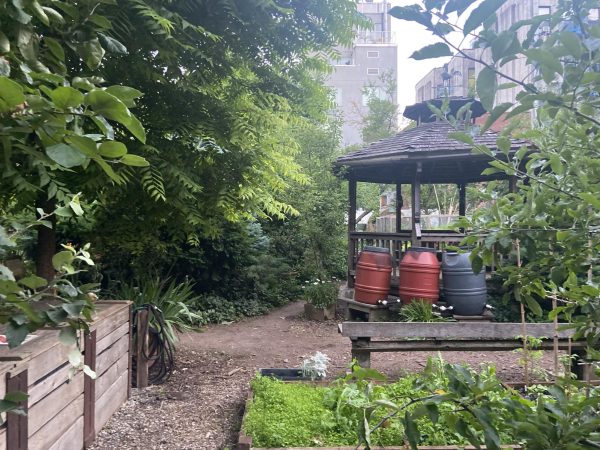December 2021 Advice Column
The Editors-in-Chief of ‘The Science Survey’ answer your questions about life during the 2021-2022 academic year.
Some of the Editors-in-Chief of the 2020-2021 ‘The Science Survey’ collaborate during a Zoom meeting after school. Pictured from left to right, top to bottom, are Cadence Chen ’22, Maggie Schneider ’22, Arianne Browne ’22, Jillian Chong ’22 and Victoria Diaz ’22 (Not pictured: Saamiya Ahmed ’22 and Declan Hilfers ’22).
Hi, Bronx Science!
We hope you’re enjoying being back in the building and seeing the very real, carbon-based faces of your classmates! As amazing as it is that we can return to a semi-normal learning environment, we know it is also a hard transition to make, especially for our ninth graders and sophomores. In this column, we’ll be giving advice on how to make that transition easier for all of you, as well as some general words of Bronx Science wisdom. Enjoy!
With love,
The Editors-in-Chief of the 2021-2022 Science Survey:
Maggie Schneider ’22 (she/her), Cadence Chen ’22 (she/her), Saamiya Ahmed (he/they) ’22, Declan Hilfers ’22 (he/him), Arianne Browne (she/her) ’22, Victoria Diaz ’22 (she/her), and Jillan Chong ’22 (she/her)
What advice do you have for getting a good teacher recommendation?
Getting a good teacher recommendation is entirely dependent on your relationship with a given teacher, so make sure that they know you really well. This could be a teacher whose SGI you go to, or just one you generally talk to and ask advice from. The teacher could also be someone who has taught you multiple times, as this ensures that they know you, how you behave in class, and just what type of person you are.
You should also make sure that you participate a lot in that teacher’s class, because they need stories and examples to go off of for their recommendation. Most teachers will ask you to fill out a form before they write their letter, asking you about specific times you demonstrated certain traits like leadership and collaboration, so you might also want to make note of certain projects or activities throughout the year that you think show how you are as a student.
– Saamiya Ahmed (he/they) ’22
How do I better handle the transition from online to in person school with regard to workload and time management?
Being able to balance time and workload is a skill many of us struggle to learn, even in a “normal” year. With the influx of exams, activities, and assignments, it’s easy to feel overwhelmed by all of your responsibilities. I myself am no stranger to this. The way I try to mitigate the stress caused by this workload is by planning out my day. I find that creating a list of tasks I need to complete, ordered by priority, helps me stay focused on the quality of my work instead of the quantity. Keep in mind that even if you fail to finish all the tasks on your list, don’t give up! There are only twenty-four hours in a day (at least seven of which you spend in school), so maximize your free time, try to tackle as much as you can, and move the uncompleted tasks to tomorrow’s list.
When planning out your day, don’t underestimate the power of sleep. Add it into your schedule and prioritize it! The less sleep you get, the harder it is to think and the slower you work. Even sleeping half an hour less can negatively affect your productivity during the day, and you can carry that sleep deficiency with you for the rest of the week.
There’s a lot of advice and knowledge to be shared on this topic, but there’s no guarantee it will always be effective. Test out each method for yourself, determine which one(s) work best for you, and stick with them.
– Jillian Chong (she/her) ’22
How can we get used to taking in-person tests again? Many students, including myself, have been having difficulties focusing and managing their time on these assessments.
Getting used to in-person tests will definitely take some time, but there are still some great ways to improve your skills in the short term. First off, if you want to stay focused, you need to have a calm mindset when the test begins. As you study in advance for the test, going over your notes can be a good tool in its own right, but if you just try to memorize as many key terms as possible, you’re more likely to end up fixating on those terms and giving yourself trouble on, well, everything else. Instead, review big picture ideas, which will spill over into other parts of the test and help your performance.
When taking the actual test, you should pace yourself and take your time on questions. This might seem counterintuitive, but it allows you to digest the material and give more thoughtful answers, which stops you from wasting time when you (hopefully) check your work, making it much easier to assess hard questions. Speaking of which, when you do get stuck, do not be afraid to skip a question and come back later. One of the worst, and most common, things that happens is students spending too much time on a single or a few pesky questions, thus lowering their score on a test they should have done well on.
– Declan Hilfers (he/him) ’22
How do I know if I am doing enough extracurriculars to put on my college applications? Is there any place I can go to find more opportunities for internships and related activities?
This is such a great question! Many students think they have to pile on a million activities for colleges when this isn’t necessary at all. At Bronx Science, there are so many activities to involve yourself in, and you should definitely try things out if you can. I also think everyone should eventually prioritize activities they’re actually interested in and are willing to devote time to. Many things count as “extracurriculars,” including having a job and taking care of younger siblings at home. If your commute time, family situation, or any other circumstance limits your involvement after school, this is also perfectly fine, as there are opportunities to tell your story on your college applications.
With that being said, you’ll definitely hear about opportunities through your day-to-day interactions with people at Bronx Science. Many students have found opportunities through word-of-mouth and communicating with their peers. Some clubs also advertise volunteer and internship opportunities. You can ask your guidance counselor or your teachers about any opportunities they have heard of. Personally, I’ve found so many opportunities online! I also think the Facebook group is a great resource. Good luck with everything!
– Victoria Diaz (she/her) ’22
As a junior, how do I begin the college search? What should I be doing this year in terms of applying for college?
Aside from the basics (keeping up your grades, finishing your standardized testing, continuing your involvement in extracurriculars, and prioritizing your mental health), somethin that I wish I had done early on was to research colleges. My family has only ever gone to state schools, so I wasn’t aware of how many other types of colleges were out there. I didn’t even know most of the colleges on my “applying-to” list existed until three months ago. This issue of the advice column has some great advice on which factors to consider. I also recommend attending virtual information sessions for schools you wouldn’t have originally considered.
If you’re interested in doing neuroscience research, consider a university with broad offerings. Want to be a veterinarian? Going international may allow you to obtain certification faster and cheaper. Many seniors end up having similar schools on their list in part because they didn’t take the time to thoroughly research their options and resort to applying to colleges with names that they’ve heard of before. While there’s nothing wrong with having a “typical” Bronx Science student’s college list, know that there are other schools that are less typical. which might be a perfect fit for you. Plus, it can be fun imagining what your life could be like in different campus cultures and different regions.
Also, if you’re not totally clear on your family’s financial status, try to have a serious conversation with your parents about finances. You need to know which colleges will be financially viable for you to attend.
Possibly more important than applying to college, I want you to continue developing as a person. After all the frenzy of the college application season, you’ll be left with yourself. How will you continue to navigate the world?
During the college application process, you’ll have so much information and advice, many contradicting, thrown at you. As such with all advice, listen and filter.
– Cadence Chen (she/her) ’22
What should be a healthy mindset to have for having a successful four years at Bronx Science?
I think the best way to enjoy your time here is by finding extracurriculars that you love and can look forward to every week. Your classes will stretch you academically, but clubs and sports are what will help you to find a community and niche within Bronx Science. If you orient yourself towards activities that you know will make you happy, you’ll have a better high school experience.
Moreover, you (and everyone else!) should always remember that everyone is different. It’s easy to get swept up in the habit of comparing grades and accomplishments, but doing so often makes students feel self-conscious or insecure in themselves. Do the work that you think you need to do, rather than what you think everyone else is doing. Don’t be afraid to ask for help, even if your classmates think the material is easy, and join that club you’re interested in, even if your friends aren’t going. I suppose what I’m trying to say is that you shouldn’t be afraid to swim against the current a little.
– Maggie Schneider (she/her) ’22
How can you properly deal with a lack of motivation to do work? Oftentimes I have a lot of work that I am aware of, yet I can’t bring myself to start it and work through it consistently. How do I get past that?
One way to get past that is to remind yourself why you’re doing any of this work in the first place. Are you working hard so that you can create a better life for yourself? Or are you more driven by a passion in a certain subject? Whatever the reason is, hold on to it. Remind yourself that the hard work and sacrifice you put in now will pay off in the long run, and you’ll be so thankful for all the little things you did that led up to that moment.
But maybe the promise of tomorrow isn’t enough to motivate you right this second! In that case, I’d suggest creating a reward system for yourself and prioritizing the schoolwork you have to do. For example, think of what you’d rather be doing instead (watching Netflix, hanging out with friends, or simply sleeping) and tell yourself that those are your rewards for doing what you need to do. Your mental health can definitely impact your ability and outlook on schoolwork, so it’s important to recognize if you need help and seek it from your guidance counselor or our social workers, so that you can better yourself as a whole.
– Arianne Browne (she/her) ’22
In this column, we’ll be giving advice on how to make that transition easier for all of you, as well as some general words of Bronx Science wisdom. Enjoy!
Maggie Schneider is an Editor-in-Chief of ‘The Science Survey.’ She loves journalistic writing because it is a recognition of the infinite number of...
Saamiya Ahmed is an Editor-in-Chief for ‘The Science Survey.’ They see journalism as a way to educate others and to help brighten readers’ days with...
Jillian Chong is an Editor-in-Chief for ‘The Science Survey.’ As a journalist, she loves that she has the ability to voice her opinions and inform...
Cadence Chen is an Editor-in-Chief for ‘The Science Survey.’ She enjoys journalistic writing for its artistic concision and sharp insights. Cadence...
Declan Hilfers is an Editor-in-Chief and Staff Reporter for ‘The Science Survey.’ He is attracted to journalism because it presents an outlet to bring...
Arianne Browne is an Editor-in-Chief for ‘The Science Survey,’ a position she’s dreamed of ever since she was a child. Writing has been her passion...
Victoria Diaz is an Editor-in-Chief for ‘The Science Survey'. She believes that journalism is important in its ability to share ideas and knowledge with...

